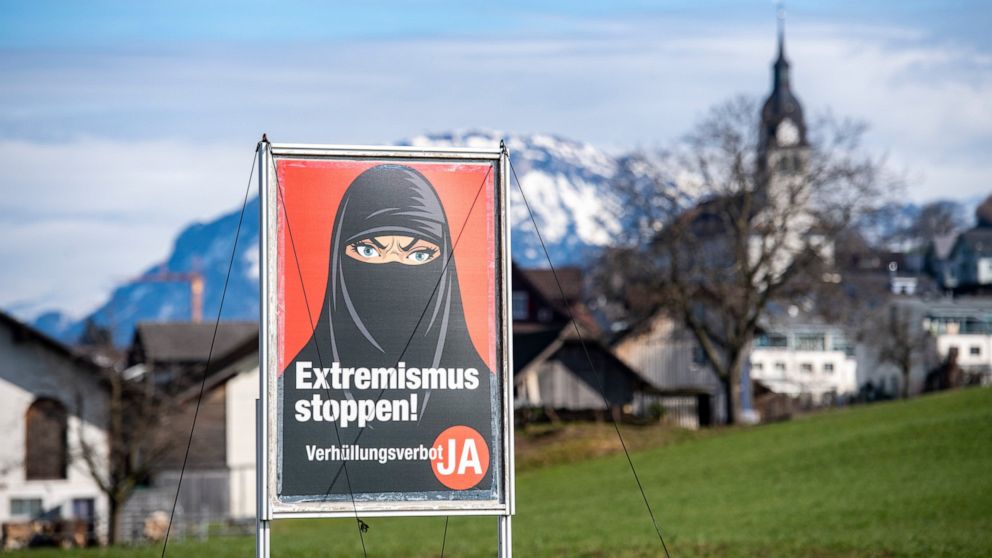Swiss vote on proposal to ban face coverings in public
Swiss voters have delivered their verdict on a proposal to ban face coverings, both the niqabs and burqas worn by a few Muslim women and the ski masks and bandannas used by protesters
BERLIN — Swiss voters delivered their verdict Sunday on a proposal to ban face coverings, both the niqabs and burqas worn by a few Muslim women in the country and the ski masks and bandannas used by protesters. A projection after polls closed pointed to a very close result.
The measure would outlaw covering one’s face in public places like restaurants, sports stadiums, public transport or simply walking in the street. There would be exceptions at religious sites and for security or health reasons, such as the face masks people are wearing now to protect against COVID-19, as well as for traditional Carnival celebrations. Authorities would have two years to draw up detailed legislation.
The Swiss government opposes the measure and says that people covering their faces is a “marginal” issue. It argues the measure could harm tourism — most Muslim women who wear such veils in Switzerland are visitors from well-heeled Persian Gulf states, who are often drawn to Swiss lakeside cities. And it says that it wouldn’t help the women affected.
It backs instead requiring people to show their faces if requested to do so by authorities.
Supporters of the proposal, which is coming to a vote five years after it was launched and has come to be known colloquially as the “burqa ban,” argue that the full-face coverings symbolize the repression of women and say the measure is needed to uphold a basic principle that faces should be shown in a free society like Switzerland’s.
A projection for national public broadcaster SRG after polls closed put support for the proposal at 51%, with a margin of error of plus or minus 3 percentage points. Pre-referendum polls had suggested that backing had eroded over recent weeks, and a close result was expected. Proposals need a majority of both voters and cantons to pass in Switzerland’s frequent referendums.
Two of Switzerland’s 26 cantons, or states, Ticino and St. Gallen, already have similar legislation that foresees fines for transgressions. National legislation would put Switzerland in line with countries like Belgium and France that have already enacted similar measures.
Backers include the nationalist Swiss People’s Party, which is the strongest in parliament and backed previous measures such as a ban on the construction of new minarets that voters approved in 2009.
This time around, a coalition of left-leaning parties that opposes the proposal has put up signs that read: “Absurd. Useless. Islamophobic.”
![]()


